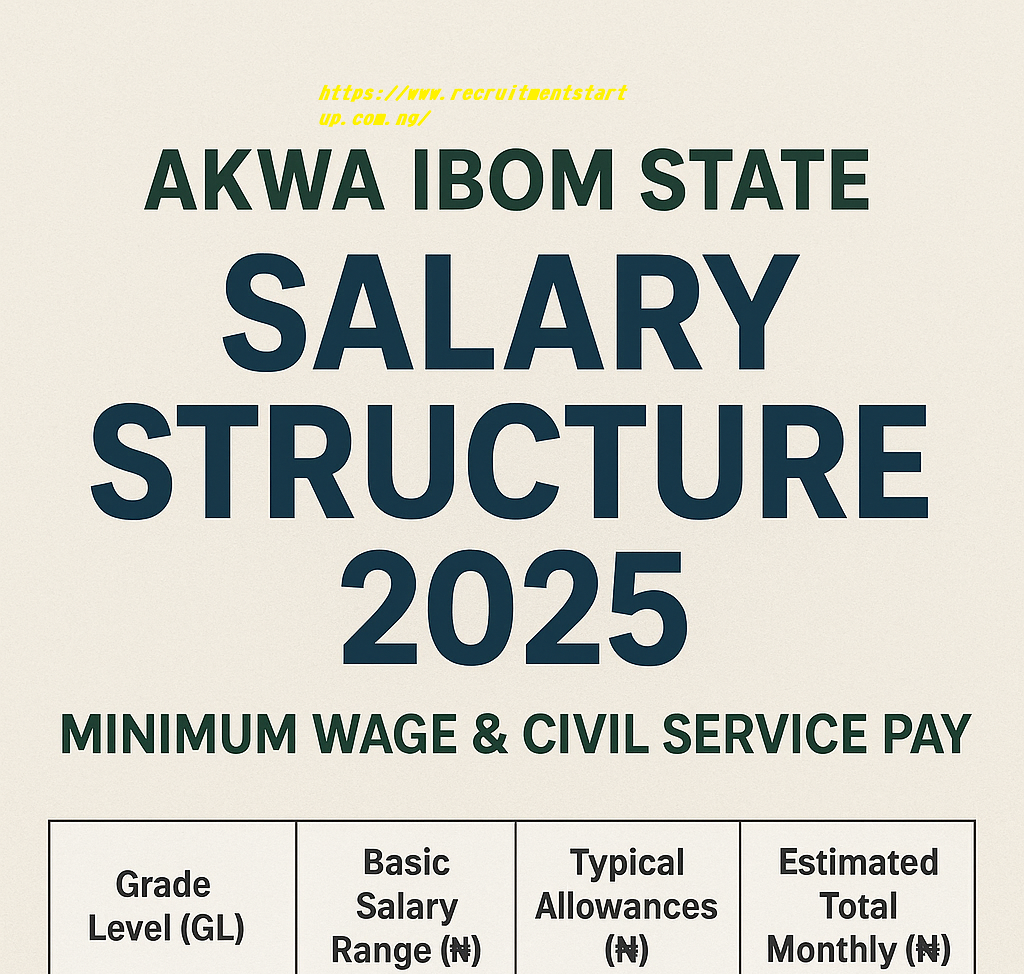Learn about the Nigeria Police Salary Structure in 2026, Ranks, Monthly Pay, and Allowances. See how ranks affect salary and the expectations you should have.

Understanding the Nigeria Police salary structure is a major concern for applicants, serving officers, and citizens who want transparency in law enforcement earnings. With economic changes, minimum wage adjustments, and welfare conversations in Nigeria, many people search for the most recent breakdown of police salaries by rank.
This guide covers:
- Current salary structure of the Nigeria Police Force (NPF)
- Rank-by-rank monthly and annual earnings
- Police allowances and bonuses
- Factors affecting salary
- FAQs about promotion, pension, and recruitment
- Key insights for job seekers and researchers
Overview of the Nigeria Police Force Salary Structure
The Nigeria Police Force salary system follows the CONPASS (Consolidated Police Salary Structure), which is influenced by:
- Rank
- Years of service
- Educational qualification
- Promotions
- Federal Government wage reviews
Generally, commissioned officers (ACP and above) earn significantly more than non-commissioned officers (Constable to Inspector).
Nigeria Police Salary by Rank (Estimated 2026 Figures)
The table below gives an updated breakdown of monthly and annual salaries across ranks:
| Rank | Approx. Monthly Salary (₦) | Approx. Annual Salary (₦) |
| Police Constable (PC) | ₦45,000 – ₦60,000 | ₦540,000 – ₦720,000 |
| Corporal | ₦65,000 – ₦75,000 | ₦780,000 – ₦900,000 |
| Sergeant | ₦70,000 – ₦90,000 | ₦840,000 – ₦1,080,000 |
| Sergeant Major | ₦90,000 – ₦110,000 | ₦1,080,000 – ₦1,320,000 |
| Inspector of Police | ₦110,000 – ₦140,000 | ₦1,320,000 – ₦1,680,000 |
| Assistant Superintendent (ASP II) | ₦145,000 – ₦170,000 | ₦1,740,000 – ₦2,040,000 |
| ASP I | ₦180,000 – ₦200,000 | ₦2,160,000 – ₦2,400,000 |
| Deputy Superintendent (DSP) | ₦200,000 – ₦230,000 | ₦2,400,000 – ₦2,760,000 |
| Superintendent of Police (SP) | ₦230,000 – ₦270,000 | ₦2,760,000 – ₦3,240,000 |
| Chief Superintendent (CSP) | ₦270,000 – ₦300,000 | ₦3,240,000 – ₦3,600,000 |
| Assistant Commissioner (ACP) | ₦300,000 – ₦350,000 | ₦3,600,000 – ₦4,200,000 |
| Deputy Commissioner (DCP) | ₦350,000 – ₦400,000 | ₦4,200,000 – ₦4,800,000 |
| Commissioner of Police (CP) | ₦450,000 – ₦500,000 | ₦5,400,000 – ₦6,000,000 |
| Assistant Inspector-General (AIG) | ₦600,000 – ₦650,000 | ₦7,200,000 – ₦7,800,000 |
| Deputy Inspector-General (DIG) | ₦700,000 – ₦800,000 | ₦8,400,000 – ₦9,600,000 |
| Inspector-General of Police (IGP) | ₦1,500,000+ | ₦18,000,000+ |
Note: Figures may vary due to allowances, location, promotions, and new federal directives.
Allowances Available to Nigeria Police Officers
Beyond the basic salary, officers receive various benefits that increase total earnings:
1. Hazard Allowance
Due to the high-risk nature of the job, officers earn a hazard allowance, especially in conflict-prone states.
2. Rent & Housing Allowance
Those without official quarters receive monthly housing stipends.
3. Uniform and Maintenance Allowance
Covers uniforms, footwear, and related expenses.
4. Transport Allowance
For mobility between duty posts and assignments.
5. Duty Tour Allowance
Paid during official travels, escorts, or presidential visits.
6. Hardship/Combat Allowance
Given to officers posted to insurgency or high-crisis areas.
7. Pension & Insurance Coverage
Retirement packages and death-in-service benefits are compulsory under federal policy.
How Ranks Influence Salary
The NPF rank hierarchy determines job responsibilities, training, and payroll positioning. Higher educational qualifications (OND, HND, BSc) can influence entry point and progression speed.
Categories:
- Non-commissioned officers: Constable to Inspector
- Junior officers: ASP to CSP
- Senior officers: ACP to DIG
- Top command: AIG and IGP
Promotion typically comes from merit, courses, years of service, and federal approval.
Entry Requirements and Salary Expectations
If you’re considering joining the Nigeria Police, here are salary-based entry points:
● Constable (Recruits)
- For SSCE holders (WAEC, NECO, NABTEB)
- Starting pay around ₦45,000 – ₦60,000
● Cadet Inspector
- For ND/Diploma holders
- Roughly ₦100,000 – ₦130,000 monthly after training
● Cadet ASP
- For university/HND graduates
- Starting salary ₦140,000+
Is the Nigeria Police Salary Competitive?
Compared to other federal agencies (like Immigration, NSCDC, Customs, or FRSC), Nigeria Police salaries are often considered lower. Many officers rely on special duty allowances and promotions to improve earnings. However, with constant calls for welfare reform, there is hope of upward adjustments.
Frequently Asked Questions (FAQs)
1. What is the starting salary for a police constable in Nigeria?
A new constable earns between ₦45,000 and ₦60,000 monthly, depending on posting and allowances.
2. Is there a difference between ASP I and ASP II salaries?
Yes. ASP II is the entry position for graduates, while ASP I earns slightly higher after passing promotion exams.
3. Do police officers receive pensions?
Yes. All officers are covered under the Contributory Pension Scheme (CPS).
4. Which rank is the highest-paid?
The Inspector-General of Police (IGP) is the highest-paid officer, earning over ₦1.5 million monthly.
5. Are Nigeria Police salaries taxed?
Yes, like other federal workers, officers pay PAYE (Pay-As-You-Earn) tax.
6. Do officers get salary increases after promotion?
Absolutely. Promotion automatically changes the salary grade and increases allowances.
7. Does location affect salary?
Yes. Officers in high-risk zones like the Northeast may receive additional combat allowances.
8. Can recruits negotiate salary?
No. The Police salary is set by government structure and cannot be negotiated individually.
9. When was the last increment?
The last significant adjustment followed the new minimum wage implementation. Another review is being considered.
10. What qualifications affect salary entry point?
Certificate level determines whether you join as a Constable, Inspector, or ASP.
See Also:
The Nigeria Police salary structure reflects rank, experience, and duties, but many officers still believe their earnings should align with the risks involved. For anyone planning to apply, understanding this structure helps set realistic expectations and career goals.
As discussions about salary increases and better welfare continue, salary transparency promotes accountability and motivates officers across all ranks.




